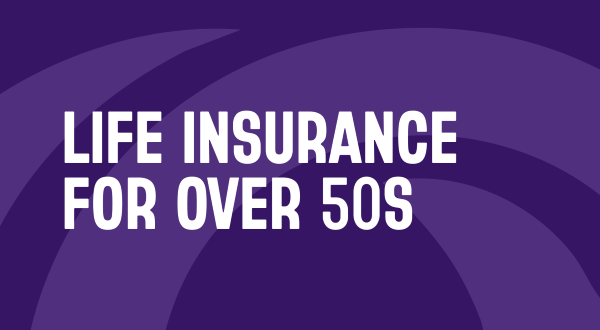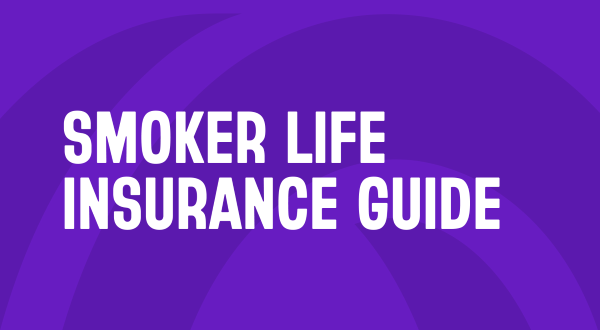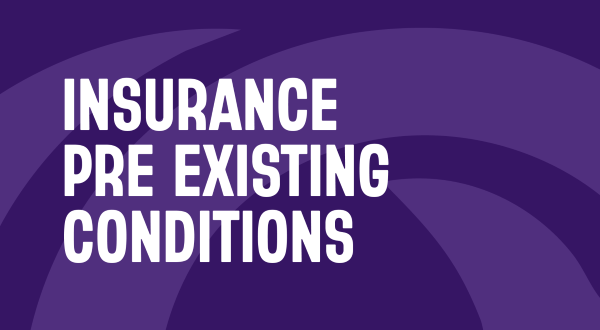COMPARE LIFE INSURANCE

Excellent
Based on 7511 reviews on
Our life insurance partners
We work with a wide range of leading insurance providers. Unfortunately some funds choose not to be listed, but we'll still help you find the best value from those who are.
Life Insurance VS Default Life in Super
Did you know you might have default life insurance via your superannuation?
There are benefits to having retail life insurance & default life in super.
Here are some of the differences:
- Retail life insurance
- Default life in super
Self ownership, Joint ownership, Cross ownership
Learn more about life insurance
Excellent
Based on 7511 reviews on
I wanted to compare my health cover to…
I wanted to compare my health cover to see if I was getting a good deal and Campare Club found me a better deal with the extras, covering me for more for slightly less amount. Their staff were friendly, courteous and went through it all, so I could understand my new policy. I wouldn’t hesitate to contact Compare Club in the future.
Cate
Very thorough
Very thorough, helpful and friendly
Dianne
How you communicate with people which was very good and professional
Very good experience person helping mi with filing form I am happy and thenk you
Janikowski
Great communication I will recommend…
Great communication I will recommend the helpfulness
Bernadette
excellent service with all the…
excellent service with all the information I needed
Leonard
Comparison rates
Comparison rates, good service, very helpful
suzannedixon
I was very pleased with the helpful support.
I was very pleased with the helpful support when having a Compare Club employee help me over the phone to change to cheaper electricity and gas schemes and to talk me through applying for Government $100 rebate on my iPad.
Liz
Very efficient
Very efficient , explained changes and differences between my old policy and the new one to make sure I understood what they were. The change over was seamless.
Wayne knott
Beneficiary: The person or entity you choose to receive any of your payable benefits, in the event a covered incident occurs. Note: in a case of critical illness or total and permanent disability, the beneficiary is usually you but you can nominate someone else. In the case of your death, any benefit payment will go to your chosen person, or organisation. Key points about beneficiaries include:
- Designation: You can choose your own beneficiary. It can be your spouse, child, family member, friend, trust, or even a charitable organisation. You’re able to select multiple beneficiaries and specify the percentage or amount each should receive.
- Primary and Contingent Beneficiaries: Your primary beneficiary is the first person or entity entitled to receive the death benefit. If your primary beneficiary predeceases you, or is unable to receive the benefit, your contingent beneficiary, also known as yout secondary beneficiary, will receive your benefit. Contingent beneficiaries are often named as backups to ensure your death benefit goes to your intended recipients.
- Change of Beneficiary: Typically, you have the right to change your beneficiary/ies at any stage of your life cover. It's important to keep this information up to date, reflecting any changes in circumstances, such as marriage, divorce, or the birth of your children.
- Irrevocable Beneficiary: In some cases, you may choose to designate your beneficiary as "irrevocable." This means that you can’t change your beneficiary without their written consent. It's important to carefully consider the implications of an irrevocable beneficiary designation, as it limits your flexibility.
- Your Estate as Beneficiary: If you name your estate as your beneficiary, your death benefit becomes part of your estate and can be subject to estate taxes and creditors' claims. Naming specific individuals or entities as beneficiaries can avoid these complications.
Charitable Giving: Life insurance can also be used to create a legacy by designating a charitable organization as a beneficiary. This allows individuals to support causes or organizations that are important to them, leaving a lasting impact beyond their lifetime.
Death Benefit: The amount of money paid by your insurance company to your beneficiary/ies upon your death. It’s typically a tax-free lump sum.
Death Cover: Death cover, also known as death benefit or life cover, is the fundamental component of a life insurance policy. It pays out a lump sum to your designated beneficiaries upon your death. Your death benefit is typically paid out to help your beneficiaries cover expenses such as funeral costs, outstanding debts, medical costs, mortgage payments, education expenses, and day-to-day living expenses.
Exclusion: Specific circumstances, conditions, or events that aren’t covered by your insurance policy. Exclusions vary between policies, and it's essential to review them carefully before purchasing a policy.
Income Protection Insurance: Also known as salary continuance insurance, income protection provides a replacement income if you’re unable to work due to illness or injury. It usually pays out around 70% of your regular income for a specified period.
Legatee: A legatee refers to an individual or entity named in your Will or trust to receive a specific bequest or gift. In the context of life cover, your legatee can also be your payout beneficiary.
Key points about legatees include:
- a. Bequest Designation: A legatee is typically designated in a legal document such as a will or trust. The insured person, as the policyholder, has the discretion to name one or more legatees as beneficiaries of their life insurance policy.
- b. Specific Bequest: Unlike primary and contingent beneficiaries, who may receive a share of the overall death benefit, a legatee is typically named to receive a specific bequest or gift. This could be a fixed amount of money, a particular asset, or a percentage of the estate.
- c. Importance of Proper Documentation: To ensure that the life insurance proceeds are distributed according to the insured person's wishes, it is crucial to clearly and accurately designate legatees in the appropriate legal documents. This helps avoid confusion or disputes regarding the distribution of assets.
- d. Relationship to Estate Planning: Legatees play a significant role in estate planning and the distribution of assets after an individual's passing. They may be family members, friends, charitable organizations, or any other entity the insured person wishes to benefit.
Life Insurance, also known as Death Cover: A contract between you and your insurance company, where the insurer agrees to pay out a specific amount of money in the event of your death (i.e., your death benefit), to your beneficiaries when you die.
Policyholder: The individual who purchased and owns the life insurance policy (i.e. you). You may also be referred to as ‘the insured’.
Premium: The amount of money you pay to your insurance company to maintain your cover. Premiums can be paid monthly, quarterly, annually, or in some other agreed-upon frequency.
Total and Permanent Disability (TPD) Cover: TPD cover pays a lump sum benefit if you become totally and permanently disabled and can’t work ever again in your own or any occupation for which you’re reasonably suited based on education, training, and/or experience.
Trauma Cover: Also referred to as critical illness insurance, trauma cover provides a lump sum payment if you’re diagnosed with a specified critical illness, or you experience a major medical event. Examples of covered conditions include cancer, heart attack, stroke, or a major organ transplant.
Underwriting: This is the process where your insurance company evaluates your risk profile, including your health, occupation, lifestyle, and medical history. This is done to determine whether you will be offered cover, and the price of your insurance premium. *please note: that conditions may apply depending on your policy
Waiting Period: In life insurance, the waiting period refers to the specified period of time that must elapse after the policy's inception or a claimable event before the policyholder becomes eligible to receive certain benefits.
Key points about waiting periods in life insurance include:
- a. Duration: The waiting period can vary depending on the terms and conditions of the life insurance policy. It is typically defined in terms of days, weeks, or months. Common waiting period durations range from 30 days to six months, but they can be longer or shorter depending on the specific policy.
- b. Claimable Events: The waiting period often applies to specific events or conditions. For example, in the case of a life insurance policy, the waiting period might be triggered by a claim for certain critical illnesses or total and permanent disability benefits. During the waiting period, the policyholder is not eligible to receive these particular benefits even if the triggering event occurs.
- c. Exclusions: It's important to review the policy's terms and conditions to understand any exclusions or limitations.. Certain events or conditions may be explicitly excluded from coverage, or there may be specific waiting periods for different benefits within the same policy.
- d. Premium Payments: It's worth noting that premium payments are typically required during the waiting period, even though the policyholder may not be eligible for certain benefits during that time. Regular premium payments ensure that the policy remains active and in force until the term expires or for as long as you choose to keep it.
Waiting Period: The initial period after your illness or injury occurs, during which you must be unable to work before you’re entitled to any benefit payments under an income protection policy. This can be an important factor when selecting a policy, and an insurer.
Wealth Preservation: Life insurance can be used as a tool for preserving wealth and passing it on to future generations. By providing liquidity to cover estate settlement costs, such as taxes or legal fees, life insurance can help ensure that the intended beneficiaries receive the full value of the estate.
Most people tend to get life insurance when they get their first mortgage, get married or have a baby or when other life significant events occur.
Your life insurance contract is based on your circumstances when your policy starts, so if your health changes AFTER that, your policy is not affected.
Yes it can. If you change occupation to a lower risk job you may be able to apply for lower rates for Total and Permanent Disability (TPD) and Income Protection cover.

All your life insurance questions answered with our in depth guides



Advizer Pty Ltd ABN 83 168 993 333 of 201 Sussex Street, Sydney, trading as Life Insurance Comparison, owns and operates LifeinsuranceComparison.com.au and its associated website. Advizer Pty Ltd is an authorised representative of Alternative Media Pty Ltd (AFSL 486326) and fully owned subsidary of Compare Club Group.